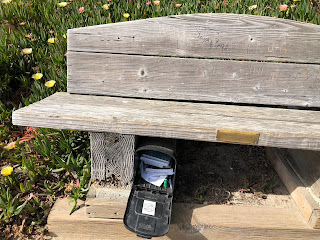We're all sick of it. Being locked in our houses, locked out of the lives of those we love. I just want to walk out the door and keep going. Except for the getting sick and dying part.
If I can’t just up and run, at least I want to think about what we’re doing to make it better so that one day we can get back to normal. I want to read thoughtful pieces by sensible people thinking out loud about how best to work our way through this. I don’t want to fight about it. We’re not the enemy, COVID is.
Except that’s not true, is it? We are the enemy. For both understandable and baffling reasons we can’t all agree on what to do. Vaccinate? Mask up? Send the kids to school? Go back to work at the office?
The science isn’t all that hard. Yes, get vaccinated. Yes, wear masks in many situations. Be careful and plod along until this thing runs out of hosts. Support each other in the process so that as many of us as possible, people and businesses, survive.
So, where does a program of giving unemployment benefits to those who are fired from their jobs because they refuse to get vaccinated, recently adopted by five or six southern states, fit into that plan? Doesn’t that just give people an incentive to do exactly the wrong thing for the common good?
Yes, of course it does.
So, why?
Well, I think you know the answer to that.
A virus worse than COVID has infected us. Its symptoms are a kind of rabies like madness. Those suffering from it are determined to do what they damn well please, no matter the cost to others.
We’d never have won WW II with that attitude. We’d never have pulled ourselves out of the Great Depression with that selfishness.
And we won’t beat COVID that way. The misery will be prolonged in the name of personal freedom.
To Make America Great Again, we must purge it. That seems to be the thinking, if you can call it that. The country has a sepsis of liberalism that is poisoning our freedoms.
What doctors often have to do to treat sepsis is cut off limbs. Where should we start? Hands or feet?

















